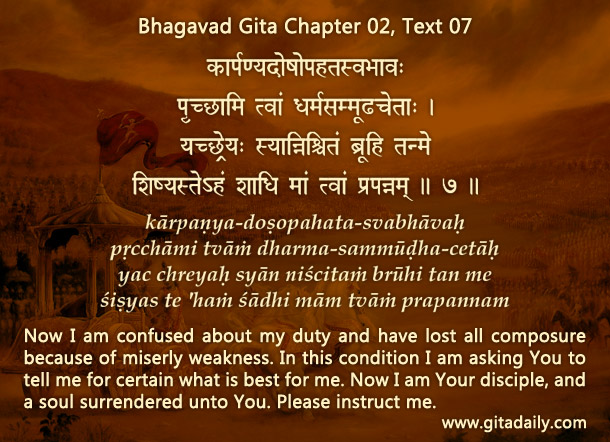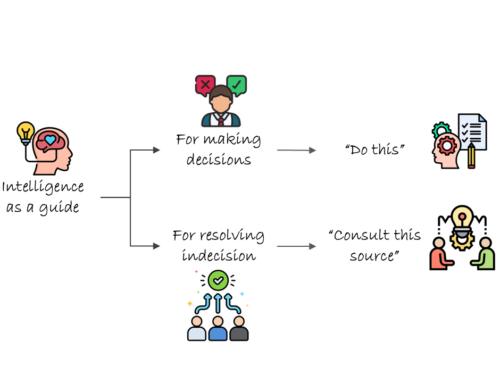Three levels of answers to the Gita’s driving question – The Bhagavad-gita (02.07) is spoken by Krishna to answer Arjuna’s question, “What is dharma, the right thing to do?”
To help us understand how we need to act, Gita wisdom first addresses foundational truths that form the worldview that shapes our choices about our actions. Significantly, these three questions are broadly addressed in the Gita’s three sections of six chapters each.
Who we are: In its second chapter, the Gita focuses on explaining our identity, which extends beyond our biology and our psychology to our spirituality. We are not just our bodies or even our minds; we are souls who are presently transmigrating through various bodies in various lifetimes. Based on this understanding of our identity, the Gita’s first six chapters explain how to act practically in a mood of dutiful detachment (karma-yoga).
Whose we are: We all are situated in various material locations such as minds, bodies, families, communities, nationalities. All of these give us a certain sense of belonging. Ultimately, we all belong to the ultimate reality, which the Gita explains to be the all-attractive supreme person, Krishna. The Gita’s central six chapters focus on elaborating the nature of Krishna and his pervasive presence in this world. By appreciating his accessibility in this world, the Gita’s middle six chapters explain how to act in a mood of devotional service to Krishna (bhakti-yoga).
Where we are: We are presently functioning in the material world. The Gita’s last six chapters deconstruct the world into its component elements, its functional mechanisms (gunas, modes). By thus providing a more philosophically informed vision of the world, the Gita equips us to act wisely (jnana-yoga).
With this holistic understanding, we can see our immediate choices in proper perspective and choose judiciously.
One-sentence summary:
In determining what to do, focus first on understanding who we are, whose we are and where we are.
Think it over:
- How does the Gita address the question of dharma?
- How do the Gita’s three sections deal with three key questions?
- Are you facing any difficult choice? How can Gita wisdom guide you?
***
02.07: Now I am confused about my duty and have lost all composure because of miserly weakness. In this condition I am asking You to tell me for certain what is best for me. Now I am Your disciple, and a soul surrendered unto You. Please instruct me.
To know more about this verse, please click on the image



Hare Krishna prabhu, Please accept my humble obeisances. All Glories to Srila Prabhupada.
Thank you very much for Gita Flow series. This is exactly what I was looking forward to understand since I came in touch with Gita. So clearly explained. It is very easy to understand also. This is such a nice addition to my study of Bhakti shastri along with videos and books. Very much grateful to you for this.
Your aspiring servant,
Vilasa Manjari Devi Dasi
Thank you for your thoughtful appreciation; happy to be of service.